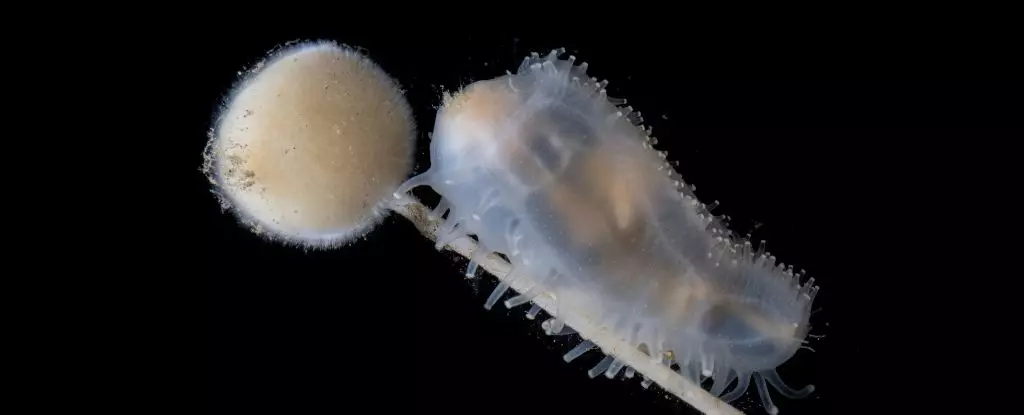In a remarkable feat of exploration, the Schmidt Ocean Institute’s research vessel, Falkor (too), ventured into one of the most enigmatic realms of our planet: the South Sandwich Islands. This expedition was not merely a tour through murky waters; it was a clarion call to humanity about the urgency of preserving the delicate balance of marine ecosystems that are rapidly fading away. The 35-day long odyssey revealed incredible biodiversity iteratively shaped by the unique hydrothermal vents that had, until now, remained hidden from the eyes of science and the public alike.
This deep-sea journey was part of the broader Ocean Census initiative, which aims to catalog marine life before it suffers irrevocable losses due to human activities such as deep-sea mining and climate change. However, what strikes me as profoundly beautiful—and utterly tragic—is the juxtaposition of discovering breathtaking ecosystems while also recognizing that time is running out to protect them. One has to grapple with the paradox of human advancement: we possess the capability to unveil nature’s wonders, yet we simultaneously propel the forces that threaten their existence.
Revolutionary Discoveries Await
While the world marveled at the live footage of the colossal squid, it was the other breathtaking discoveries that pierce through the veil of scientific ignorance. The vermillion coral garden found on Humpback Seamount, thriving near hydrothermal vents at an extraordinary depth of 700 meters, stands as a testament to life’s tenacity amidst adversity. Reaching for light in a dark ocean, these corals are reminiscent of the resilience exhibited by nature. Yet, one can’t help but wonder—how long can they thrive if the very ground they flourish on is under siege from human industry?
Not surprisingly, the expedition also unveiled grim realities. The image of a grenadier fish infested with parasitic copepods, resembling hideous pigtails sprouting from its gills, starkly illustrates a common undercurrent in marine environments: survival is often fraught with suffering. As elegant as this life appears within the depths, it is unavoidably intertwined with a haunting narrative of struggle and adaptation against overwhelming odds.
A Symphony of Life and Loss
The alacrity with which marine biologist Michelle Taylor referred to this expedition as a “glimpse into one of the most remote and biologically rich parts of our ocean” resonates powerfully with anyone who has an inkling of ecological responsibility. Yet, her sentiment carries with it a sobering reality: while we explore and document these realms, each moment spent in discovery is a reminder of the ticking clock. Humanity’s environmental footprint looms like a specter over this newfound treasure trove, threatening not only the newfound marine populations but our own planetary health as well.
Let us not overlook the value of combining exploration with conservation, the two must be allies, not adversaries. The findings of this voyage must catalyze discussions around protecting these ecosystems, not just for their aesthetic beauty or potential scientific breakthroughs, but for their intrinsic value in maintaining our planet’s life-sustaining systems.
Looking Ahead: The Fight Remains
What we learn from this expedition’s revelations is a call to arms; it’s a battle not just against our ignorance, but against complacency itself. It’s our responsibility to champion policies and practices that prioritize ocean health and biodiversity. Every coral, squid, and hydra inhabiting these waters deserves a structured effort toward protection. We should be invigorated by the enchanting images of these newly revealed ecosystems, yet we should also feel the weight of their fragility.
The enthusiasm shared by the scientific community surrounding the expedition’s discoveries highlights both the potential for knowledge and the imperative for action. While we celebrate their beauty and fragility, we must leverage this information to institute change. Positioned on the edge of a precipice, we must face a simple question: Will we act in time to safeguard these imperiled ecosystems, or will we be mere witnesses to their tranquil destruction? The search for answers lies within our collective will to protect the oceans before they become nothing but echoes of what they once were.

